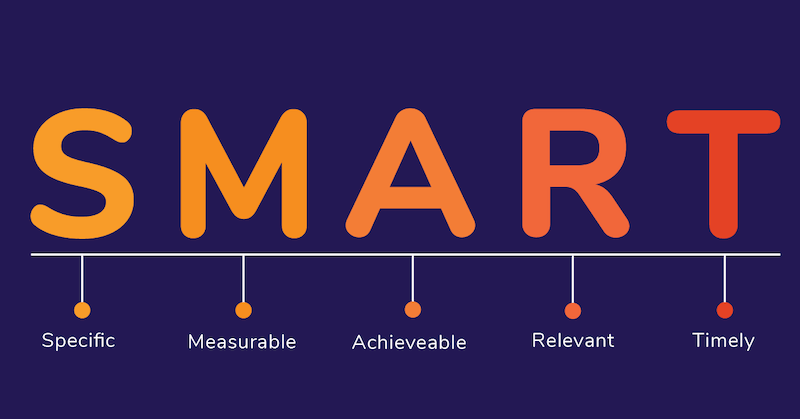Goal setting is a fundamental component of personal development, serving as a compass that guides individuals towards their aspirations and potential. In an increasingly fast-paced world, the ability to define clear, actionable goals has become essential for success in both personal and professional realms.
This comprehensive guide explores the multifaceted role of goal setting in personal development, highlighting its significance in fostering motivation, enhancing self-discipline, and promoting a sense of purpose. By establishing concrete objectives, individuals can transform vague aspirations into tangible milestones, thereby facilitating focused efforts and measurable progress.
Furthermore, effective goal setting encourages reflection and adaptability, allowing individuals to reassess their priorities and adjust their strategies in response to changing circumstances. This article delves into the various techniques and frameworks that can be employed to set meaningful goals, as well as the psychological principles underlying their effectiveness.
By understanding the intricacies of goal setting, readers can equip themselves with the tools necessary to navigate their personal development journeys with clarity and intention, ultimately leading to a more fulfilling and productive life.
Understanding the importance of goal setting.
Goal setting serves as a foundational element in personal development, as it provides individuals with a clear direction and purpose in their lives. By establishing specific, measurable, achievable, relevant, and time-bound objectives, people can create a framework that guides their actions and decisions.
This structured approach enables them to break down larger aspirations into manageable steps, facilitating a sense of progress and accomplishment. Furthermore, setting goals fosters motivation and commitment, as individuals can visualize their desired outcomes and remain focused on the journey ahead.
Additionally, the process of goal setting encourages self-reflection and awareness. Individuals must assess their current situation, identify their strengths and weaknesses, and determine what truly matters to them.
This introspective element not only clarifies personal values and priorities but also helps individuals develop resilience and adaptability in the face of challenges. By regularly revisiting and adjusting their goals, they can cultivate a growth mindset that embraces learning and improvement, ultimately leading to greater fulfillment and success in various aspects of their lives.
The measurable aspect allows for tracking progress, enabling individuals to assess their advancement and make necessary adjustments to strategies as they move forward.
How goals drive personal growth.
As individuals work towards their goals, they often encounter obstacles that require problem-solving and perseverance, which contribute to their overall growth.
This journey of overcoming difficulties builds confidence and self-efficacy, empowering individuals to tackle future challenges with a proactive mindset. Through the pursuit of goals, they gain valuable skills and insights, expanding their capabilities and enhancing their ability to navigate complex situations.
Moreover, achieving goals reinforces a sense of identity and purpose, leading to greater fulfillment and well-being. As individuals reach milestones, they not only celebrate their accomplishments but also recognize the progress they have made in their personal development journey.
This recognition fosters a growth mindset, where individuals begin to see failures as opportunities for learning and self-improvement. By continuously setting and striving for new goals, they create an ongoing cycle of growth that enriches their lives and helps them realize their full potential.
SMART goals enhance effectiveness and clarity.
Utilizing SMART criteria—Specific, Measurable, Achievable, Relevant, and Time-bound—provides individuals with a structured framework to enhance both effectiveness and clarity in their goal-setting endeavors. By defining goals with precision, individuals can clearly articulate their intentions, eliminating ambiguity and fostering a focused approach to their aspirations.
The measurable aspect allows for tracking progress, enabling individuals to assess their advancement and make necessary adjustments to strategies as they move forward. This systematic approach not only increases motivation but also reduces the likelihood of feeling overwhelmed by providing clear benchmarks to celebrate along the way.
Incorporating the SMART framework facilitates a deeper understanding of personal motivations and priorities. When goals are relevant and aligned with an individual’s core values and long-term vision, they become more than mere tasks; they transform into meaningful pursuits that resonate on a personal level.
The time-bound element introduces a sense of urgency, encouraging individuals to take action and prioritize their efforts effectively.
Consequently, this combination of specificity, measurability, relevance, and time sensitivity empowers individuals to navigate their personal development journeys with clarity and purpose, ultimately leading to more significant achievements and a heightened sense of fulfillment.
Setting measurable objectives aids progress.
Measurable objectives serve as crucial indicators of progress within the realm of personal development. They empower individuals to break down their overarching aspirations into quantifiable milestones, making it easier to track achievements over time.
This quantification allows for a tangible assessment of efforts, fostering a sense of accountability and encouraging individuals to stay committed to their paths. When progress can be seen and measured, motivation is often reignited, as individuals experience the satisfaction of reaching set benchmarks and recognizing how far they have come.
Moreover, measurable objectives provide a framework for adaptability in the face of challenges. As individuals assess their progress against these defined metrics, they can identify areas where adjustments may be necessary.
This reflective practice not only aids in refining strategies but also instills confidence in the individual’s ability to navigate obstacles, ensuring that they remain aligned with their personal development goals.
Ultimately, the clarity afforded by measurable objectives not only enhances focus but also cultivates a growth mindset, reinforcing the belief that progress is a continuous journey built on incremental successes.
Short-term goals build lasting habits.
Establishing short-term goals plays a pivotal role in fostering lasting habits that contribute to long-term success. By setting achievable, immediate objectives, individuals create a structured pathway that encourages consistent effort and dedication.
These short-term targets serve as building blocks, allowing individuals to gradually cultivate routines that align with their broader aspirations. As they accomplish these smaller goals, they not only gain confidence but also reinforce positive behaviors, making it easier to integrate these practices into their daily lives.
In essence, the process of achieving short-term goals instills a sense of discipline and resilience. Over time, the repeated success of reaching these milestones helps individuals form habits that become second nature.
This transformation is often fueled by the psychological rewards associated with accomplishment, as each success reinforces the desire to pursue further goals. Consequently, the cumulative effect of achieving short-term objectives can lead to profound changes in behavior and mindset, establishing a strong foundation for ongoing personal development and growth.
Long-term visions inspire sustained motivation.
Long-term visions serve as a powerful catalyst for sustained motivation, providing individuals with a clear and compelling picture of their future aspirations. By articulating a vivid and meaningful vision, individuals can anchor their daily efforts to a purpose that transcends immediate challenges or setbacks.
This overarching perspective helps maintain focus during difficult times, allowing individuals to navigate obstacles with a resilient mindset. When one’s vision resonates deeply, it ignites an intrinsic motivation that fuels persistence, encouraging individuals to push through adversity while remaining committed to their ultimate goals.
Furthermore, long-term visions create a framework for prioritizing actions and decisions. They enable individuals to evaluate short-term choices in light of their broader objectives, fostering a sense of coherence in their pursuits.
This alignment between daily activities and long-term ambitions not only enhances motivation but also cultivates a greater sense of fulfillment.
Individuals who are guided by a compelling vision often find themselves more engaged and passionate about their journey, as they realize each step taken is a contribution toward their desired future, reinforcing their commitment to continual personal growth.

Download our free Goal Planner
Regularly reviewing goals ensures relevance.
Regular assessment of goals is essential for ensuring they remain meaningful and aligned with an individual’s evolving aspirations and circumstances. As people progress in their personal and professional journeys, their values, interests, and priorities may shift.
By routinely evaluating their goals, individuals can identify any necessary adjustments, ensuring that the objectives they pursue are still relevant to their current situation and future ambitions. This proactive approach allows individuals to stay agile, fostering a mindset that embraces growth and adaptation rather than clinging to outdated or irrelevant targets.
Additionally, the process of reviewing goals can reveal insights about what is working and what may need improvement. It encourages individuals to reflect on their experiences, celebrate achievements, and learn from setbacks.
This reflection not only bolsters self-awareness but also enhances strategic planning, empowering individuals to make informed decisions about the paths they choose to tread. Ultimately, regular goal reviews cultivate a dynamic environment where personal development is continually nurtured, ensuring that the pursuit of success remains aligned with one’s true self and aspirations.
Achieving goals fosters self-confidence and resilience.
Accomplishing set objectives plays a significant role in building self-confidence and resilience. As individuals achieve their goals, they gain a sense of competence and mastery over their circumstances, reinforcing their belief in their abilities.
This newfound self-assurance can lead to a greater willingness to take on challenges, as the individual recognizes that they have successfully navigated obstacles in the past. Each achievement, whether large or small, serves to validate their efforts and fuels the desire to pursue even more ambitious targets.
Moreover, the journey of striving for and reaching goals inherently involves facing setbacks and overcoming difficulties. This process cultivates resilience, as individuals learn to adapt to challenges and maintain their motivation despite obstacles.
Embracing failure as a stepping stone rather than a stopping point fosters a growth mindset, encouraging individuals to persist in the face of adversity. Consequently, the cultivation of self-confidence and resilience not only enhances an individual’s current endeavors but also prepares them for future challenges, creating a virtuous cycle of growth and achievement.
In conclusion, the role of goal setting in personal development cannot be overstated. It serves as a foundational element that empowers individuals to clarify their aspirations, measure progress, and maintain motivation throughout their journeys.
By establishing specific, measurable, achievable, relevant, and time-bound (SMART) goals, individuals create a structured roadmap that guides them toward their desired outcomes. Furthermore, the process of setting and achieving goals fosters resilience and adaptability, crucial traits in an ever-changing world.
As individuals continue to refine their goal-setting strategies, they not only enhance their personal growth but also contribute to their overall well-being, ultimately leading to a more fulfilling and purpose-driven life.



